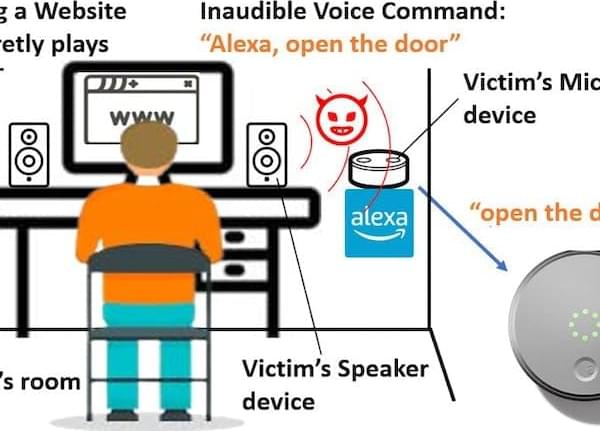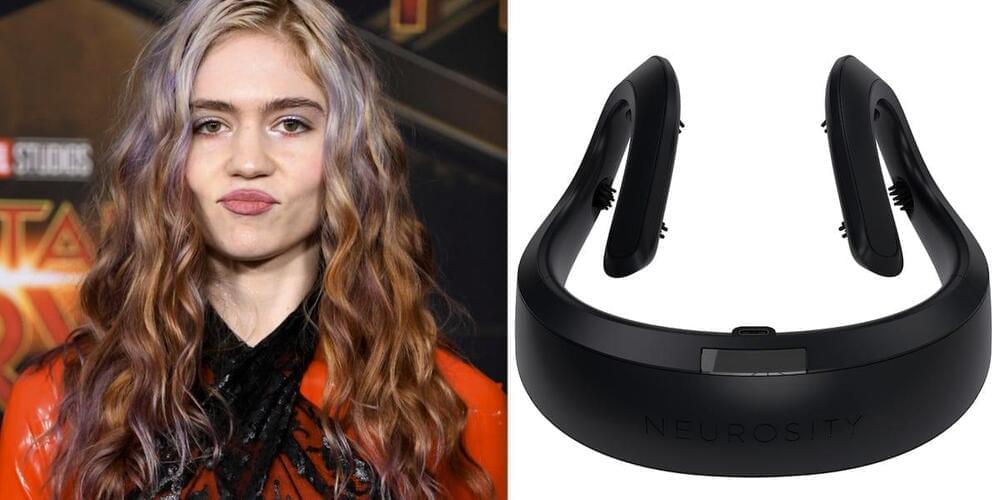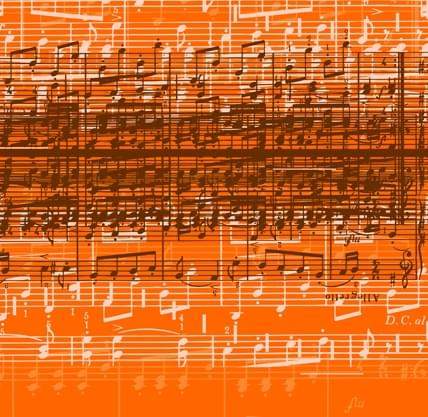By embedding commands in YouTube videos, streaming music, or even voice calls and Zoom meetings, NUIT can silently take control.



Neurosity’s headset uses electroencephalogram technology, or EEG, to measure brain activity by placing small metal electrodes on a person’s scalp. If the electrodes detect decreased electrical activity in the brain, the Crown plays music and sounds, or pulses vibrations, hoping those actions will help the user focus.
But some developers, it seems, have taken Neurosity’s tech a step further, turning the Crown into a more traditional brain computer interface that can allow users to control a computer using only their mind.
One owner of the gadget claimed they’ve used it to drive a Tesla, moving the electric car short distances by doing some mental math, which signals to the device that the person wearing it is exerting a lot of cognitive effort.
Grimes got a new brain gadget for her 35th birthday.
“Getting a non invasive brain computer interface for my birthday (!!!!?),” she tweeted Friday. “Yeah it’s a good time to be alive.”
Neurosity CEO AJ Keller confirmed that the singer, named Claire Boucher, had asked for one of the company’s headsets, known as the Crown, in a custom white color.
I used to listen to classical music more. I’m going to start again. I was searching for an article that said music helps heal brain injury but I can only find ones where it’s playing instruments that does that. But the Mozart effect is healthy and relaxing.
Just another example of how much you gain by listening.

Using music to heal the brain. If you have a TBI or know someone with one like myself, music is very therapeutic. Get some nice earbuds or over the way headphones. Wired is best or get some with long battery life. I find I feel peace and relief when I listen to certain types of music.
Why neurologic music therapy should be part of standard rehabilitation care.

Who would have thought that video games are good for TBI? I play them sometimes. Time for that, and not just music.
Video games may help TBI patients recover their physical and cognitive abilities faster than traditional therapy, according to recent research.
Although they might seem like just a pleasant distraction, video games engage several parts of the brain at once and can even promote neuroplasticity.
Today’s article will explain the many therapeutic uses video games offer. Then, we will show you some of the best types of video games for TBI.
Scientists transplanted human cerebral organoids (“minibrains”) into rats, to better study brain disorders. The neurons grown in vivo looked more like mature human brain cells than those grown in vitro, and they made better models of Timothy syndrome. The human minibrains formed deep connections with the rat brains, received sensory information, and drove the rat’s behavior.
More on how minibrains are grown and used, and the issue of organoid consciousness: https://www.youtube.com/watch?v=u6FGq7_t3Eo.
On the topic of organoid sentience and playing pong: https://www.youtube.com/watch?v=67r7fDRBlNc.
Support the channel: https://www.patreon.com/ihmcurious.
Sitcom music by John Bartmann: https://johnbartmann.com
Chapters:
0:00 Intro.
0:43 Growing Organoids.
2:57 Minibrains in Science & Medicine.
4:46 Giving Minibrains Psychedelics.
5:26 Minibrains With Eyes.
6:30 Can Minibrains Feel?
7:22 Looking For Consciousness.
9:03 The Future of Minibrain Research.
10:47 Human Minibrains Grafted Onto Mice.
12:10 What’s Next?
Videography by Island Fox Media.
Sound by Kutan Katas.
Patreon: https://www.patreon.com/IhmCurious.
Twitter: https://twitter.com/IhmCurious.
Music.
The technology I want to talk about today is something out of this world, but also a bit controversial There is a startup in Australia who are actually growing live human neurons and then integrating it into traditional computer chips… mind-blowing stuff!
My Gear:
Camera Sony Alpha 7 III: https://amzn.to/3dmv2O6
Lens Sony 50mm F1.8: https://amzn.to/3weJoJo.
Mic Sennheiser: https://amzn.to/3IKW5Ax.
Music from my videos: https://www.epidemicsound.com/referral/908oe4
Support me on Patreon: https://www.patreon.com/AnastasiInTech

Madhumita Murgia Hi, my name is Madhumita Murgia, and I’m one of the presenters of Tech Tonic. We’re looking for some feedback from our listeners about the show. So if you have a second, please fill out our brief listener survey, which you can find at ft.com/techtonicsurvey.
[MUSIC PLAYING]
In this season of Tech Tonic, we’ve been talking about quantum computers and why some people think they’re so revolutionary. But so far we’ve mainly talked about the things quantum computers can do, or at least what they might be able to do in the future that makes them so groundbreaking: performing calculations that should take centuries in minutes, cracking the unbreakable codes of the internet, dramatically speeding up the development of new drugs and materials. But what we haven’t done yet is look at why they’re able to do these things. What’s going on inside a quantum computer that makes them so extraordinary, so completely different to any computer that’s come before.
